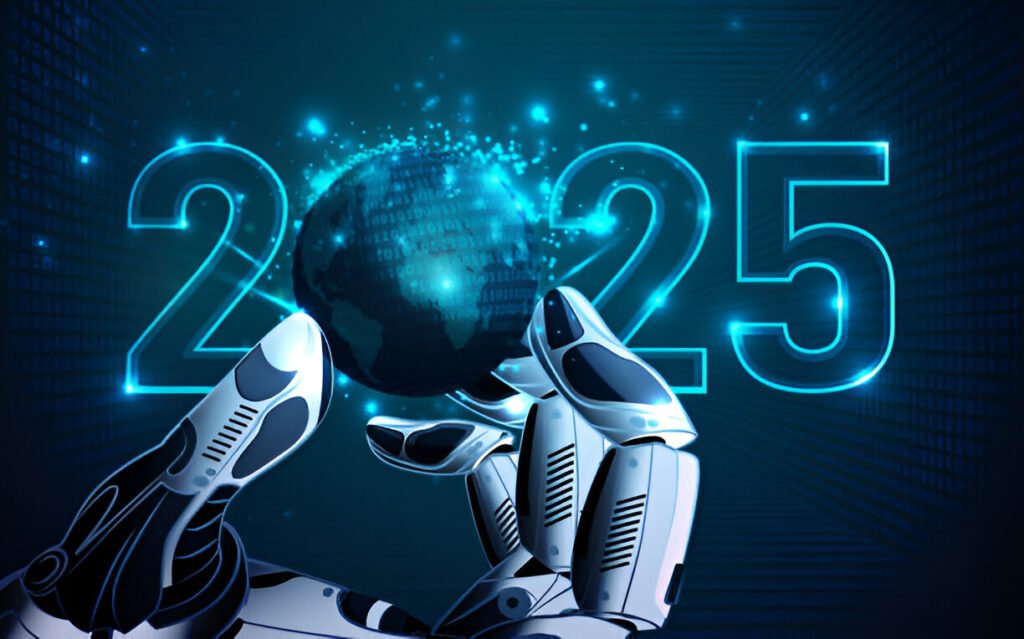Artificial intelligence (AI) is no longer just a buzzword; it has become an indispensable part of our daily lives and a cornerstone of innovation across industries. As we approach 2025, AI continues to evolve at an unprecedented pace, unlocking possibilities and raising questions about the future of technology, business, and society. Here are the key trends and expectations shaping the trajectory of AI in the near and long term.

1. Generative AI Gains Prominence
The explosion of generative AI tools like ChatGPT, DALL•E, and Stable Diffusion has demonstrated the creative potential of machine learning. By 2025, we can expect generative AI to move beyond text and image generation into more complex domains such as video editing, music composition, and real-time virtual environments. Businesses are already leveraging these tools to create personalized customer experiences, and this trend will only accelerate as generative AI becomes more accessible and capable.
Key Developments:
- Integration of generative AI in filmmaking and gaming.
- Advanced natural language understanding for highly accurate AI-generated content.
- Customizable AI models for individual and organizational needs.
2. Ethical and Responsible AI Takes Center Stage
With great power comes great responsibility. As AI systems become more pervasive, the need for ethical frameworks and regulations is growing. Governments and organizations are working on establishing clear guidelines to ensure fairness, transparency, and accountability in AI applications. By 2025, expect significant strides in AI ethics, driven by collaborations between policymakers, technologists, and ethicists.
Key Developments:
- Global standards for AI governance.
- Tools for identifying and mitigating biases in AI models.
- Enhanced focus on explainable AI (XAI) to improve trust.
3. AI-Driven Automation Expands Across Industries
From healthcare and finance to manufacturing and logistics, AI-driven automation is reshaping industries. By 2025, advancements in robotics, computer vision, and machine learning will lead to smarter automation solutions. These technologies will augment human capabilities rather than replace them, creating opportunities for more efficient workflows and enhanced decision-making.
Key Developments:
- Autonomous supply chain management.
- AI-assisted surgeries and diagnostics in healthcare.
- Intelligent customer service bots that understand the context better.
4. AI and the Internet of Things (IoT) Converge
The fusion of AI and IoT is set to unlock transformative possibilities. Smart devices, powered by real-time AI analytics, will become even more intuitive and adaptive. By 2025, smart cities, homes, and industries will rely heavily on AI to optimize energy use, reduce waste, and improve quality of life.
Key Developments:
- AI-powered predictive maintenance for industrial IoT.
- Smart city initiatives leveraging AI for traffic and resource management.
- Enhanced user experiences in smart home ecosystems.
5. AI in Climate Tech
Addressing climate change is one of humanity’s most pressing challenges, and AI is playing an increasingly critical role in this fight. By analyzing vast datasets and optimizing processes, AI is helping industries reduce emissions, improve energy efficiency, and develop sustainable solutions. In 2025 and beyond, AI will be instrumental in scaling renewable energy and advancing climate modeling.
Key Developments:
- AI algorithms for optimizing renewable energy grids.
- Enhanced precision in climate prediction models.
- Sustainable agriculture powered by AI-driven analytics.
6. AI Democratization Continues
As AI tools become more user-friendly and affordable, businesses of all sizes and individuals will have greater access to this technology. Low-code and no-code AI platforms are making it possible for non-experts to build and deploy AI solutions. This democratization will fuel innovation across sectors and geographies, empowering startups and entrepreneurs to compete on a global stage.
Key Developments:
- Growth of AI-as-a-Service (AIaaS) platforms.
- Increased availability of pre-trained models and datasets.
- Community-driven innovation in open-source AI projects.
Looking Ahead
The rapid advancements in AI come with both opportunities and challenges. As we embrace the transformative potential of AI, it is crucial to address concerns around privacy, security, and societal impact. Collaboration between governments, businesses, and researchers will be essential to shape a future where AI serves as a force for good.
By 2025 and beyond, AI will not just be a tool but a catalyst for reimagining what’s possible in our increasingly interconnected world. The question is not whether AI will transform the way we live and work, but how we can harness its potential responsibly to create a better future for all.